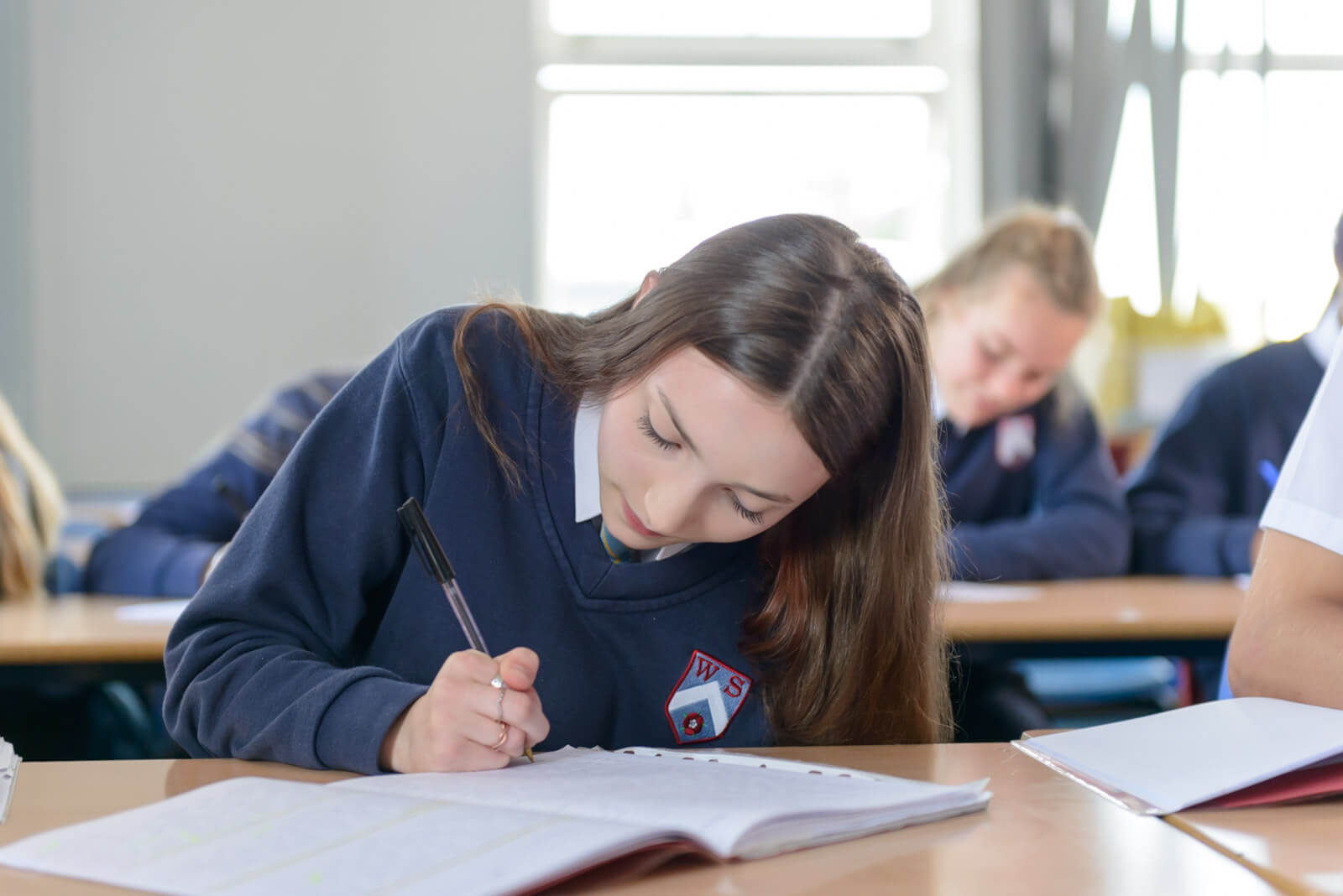Upcoming School Events
Remembering Mark Wade- Crazy Tie Day
Remembering Mark Wade- Crazy Tie Day
School Prospectus
Latest News
Languages

The faculty is based in five main teaching rooms, including a Languages Lab, and interactive websites and games are frequently used in lessons. There is a dedicated speaking room where students have the opportunity to practise their spoken French or German with Sixth Form mentors.
Year 7 MFL
Assessment
Students learn 3 sets of words each term.
They are assessed in Translation, Reading and Listening and either Speaking or Writing each term.
End of half-term assessments in Listening, Reading and either Speaking or Writing.
Year 8 MFL
Assessment
Students learn 3 sets of words each term.
They are assessed in Translation, Reading and Listening and either Speaking or Writing each term.
End of half-term assessments in Listening, Reading and either Speaking or Writing.
Year 9 MFL
Assessment
Students learn 3 sets of words each term.
They are assessed in Translation, Reading and Listening and either Speaking or Writing each term.
Year 10 & 11 French & German
The curriculum builds on prior learning at KS3 by revisiting many of the same topics in order to deepen knowledge and increase linguistic and grammatical sophistication. The GCSE curriculum allows students to deepen their knowledge about how language works and enrich their vocabulary in order for them to increase their independent use and understanding of extended language in a wide range of contexts .It is also serves to enrich students’ use of their mother tongue through comparison of the language and culture of another country. All students are supported to make great progress throughout the two year course.
We follow the Edexcel GCSE and sit 4 exams at the end of year 11 in the key skills of Listening, Speaking, Reading and Writing.
The five themes are:
- Identity and culture
- Local area, holiday and travel
- School
- Future aspirations, study and work
- International and global dimension.
Assessment
Students are internally assessed in all four skills every half term. Students have several opportunities to experience what to expect in the real exam, with full mocks in both Year 10 and Year 11. This is particularly valuable for the spoken element of the course.
GCSE exams in Listening, Reading, Speaking and Writing take place at the end of Year 11.
Homework
Weekly vocabulary learning (approx 30 minutes.)
Weekly writing / grammar practise (approx. 1-1.5 hrs)
Termly assessment preparation
Year 12 & 13 French & German
The curriculum builds on prior learning at KS4 by revisiting some of the same topics in much greater depth in order to deepen knowledge and cultural awareness. We also introduce new, more challenging topic areas which allow students to think more deeply about society. A key focus is also to increase linguistic and grammatical sophistication. Students continue to develop their independence with the language, including coping mechanisms and manipulating language. Students are able to hold spontaneous conversations on a range of topics. A literature text and film also form a key part of the course. Groups are small, enabling teachers to give plenty of individual support, whilst developing their independence ready for the future.
Our students sit the AQA A-Level exam and study the following topic areas in relation to countries where their chosen language is spoken. Students are also entered for the AS –Level qualification in year 12
French
- The digital world
- The place of volunteering
- The changing nature of family
- A culture proud of it’s heritage
- Contemporary French music
- Cinema: the 7th art form
German
- The changing nature of family
- The digital world
- Youth culture, fashion and trends
- Festivals and traditions
- Art and architecture
- Cultural life in berlin, past and present
Assessments
Students are internally assessed using a range of past papers and authentic materials throughout the school year. They will sit AS exams in the summer of year 12 and their final A-Level exams in year 13. As in the lower school, assessments continue to focus on the 4 core skills of listening, reading, speaking and writing.
Extracurricular Activities
The best way to learn a language is to use it, and we offer regular opportunities for this at Wollaston. We have a long-standing exchange program with the Max Planck Gymnasium in Delmenhorst, whose visits each year are a highlight of the school calendar. We aim to take our Year 9 and 10 Germanists to make the return leg of the visit. A Year 8 trip to Normandy is usually offered for our French students. These trips are a great way for our students to ‘live’ the language they have been learning, and develop all of the inter-personal skills which come with it.
We offer our Gifted & Talented Year 9 students the opportunity to become Leaders for Languages. As part of the year-long project, our students plan and deliver languages activities and a grand finale to promote language learning in our local primary schools.
